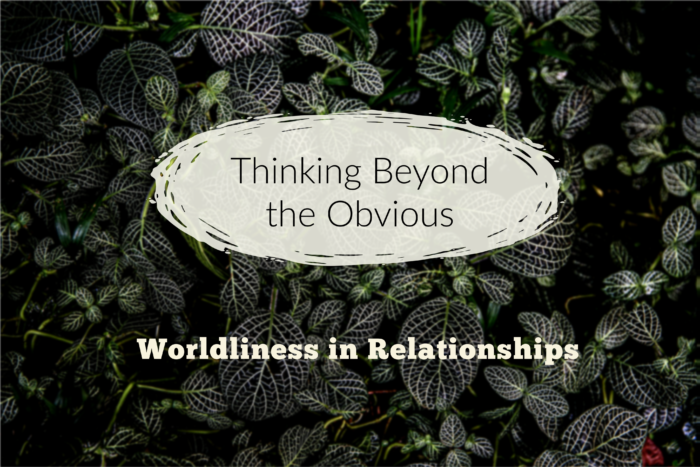
Have you ever stopped to think about what your motivation is for anything you do in life? Why do you take care of your kids? Why do you want to be financially well off? Why do you want to be kind to others?
And the question that begs to be asked is this:
Are we doing it for God or for ourselves?
Are we living a God-centered life or a self-centered life?
I am doing a Bible Study on Colossians right now (click here for this great resource) and I was really challenged by the author’s words in this week’s study. He first shared this about the fall of man that I never thought about before–
“The new creation is the result of Christ’s deliverance from the fall of Adam. In the Garden of Eden, Adam lived before God in a state of righteousness. However, he acted in disobedience, and the result of his sin was disastrous. His entire nature was transformed. He became a self-centered individual instead of God-centered. His sin also affected the entire human race. All men now bear the nature of Adam–sinfully depraved and spiritually separated from God.” p. 67* (italics mine)
I don’t think I ever thought about the fall in this way before.
So if along with our sin nature comes a self-centered life, this means that, after we are saved, we should be transformed from that self-centered, sinful creature into a new creation that is growing more like Christ and become more God-centered every day (2 Corinthians 5:17).
But is this what we are doing? Is this even something that we are being encouraged to do?
And let’s take it a step further: Even if we look like we are becoming more God-centered in our lives, is this actually true?
The author goes on to say–
“So often among Christians, character development takes on a self-centered orientation. We pursue it for our own benefit and self-improvement.” p. 70* (italics mine)
Oh my goodness. If that isn’t convicting, I am not sure what is. Oh, how often have I done this very thing? Claiming my desire is to be more like Christ but really simply desiring to have an easier/better/more fulfilling life.
This becomes very evident when we simply take a look at the Christian bestsellers on the book shelves (or on Amazon) today. There are books about how to have better relationships, better budgets, and better health. Books about how to fix our anxiety issues, our depression, our anger, our addictions. Most of these have one goal: To give us a better life.
But is this what the Christian life is all about? Is it a self-centered quest to have the best life we can have? And even if we say no to this question (because, obviously, we know from scripture that this is not our goal), are we living out what we say we believe?
Personally, I was really challenged by this. Even though I claim high and lofty spiritual goals, when I think of my desires in the light of biblical truth, I can see that they are tarnished with selfishness.
The problem is that, as sinners still stuck with our fleshly desires (I John 1:8), it is so hard to separate these two things. Of course we want to please the Lord. But it is natural to want to please ourselves. We wouldn’t be human if we wouldn’t want better lives. And so we have to sort through this messy dynamic.
And to complicate things further, even the most beautiful thing can be done for the wrong reason. Works of charity may be completed so that we receive personal glory. Supposed grace may just be a cover for our own desire to avoid conflict. Kind words may be a manipulative tool to get someone to do what we want. We want to kick our addiction, live within our means, or organize our homes to make our lives better and, often, glorifying God has nothing to do with it at all.
It’s just all so complicated.
And yet in Colossians 3:17, we can see that our motivation for everything we do–every word spoken and every action completed–should be based on our Lord Jesus–
And whatever you do in word or deed, do all in the name of the Lord Jesus, giving thanks to God the Father through Him.
In Colossians 3:23-24, Paul reiterates this–
And whatever you do, do it heartily, as to the Lord and not to men, knowing that from the Lord you will receive the reward of the inheritance; for you serve the Lord Christ.
Scripture makes it clear that our life is to be God-centered. And, yet, all around us is a Christianity that is self-centered.
So how do we A) evaluate our motives? and B) change in this area?
These are challenging questions for us, since, as humans, I am not sure we can ever get 100% beyond being tainted by personal motivation. And, thankfully, God–in His great kindness and mercy–actually makes our lives so much better when we follow Him. Isn’t that kind of Him? There isn’t anything innately wrong with wanting a good life, a better marriage, or to kick a sinful habit. These are good things to want and the fact that we receive joy and happiness from these things is exactly what God intended.
The sin enters in when we only do what is right when it conveniences or benefits ourselves. In fact, as I was thinking about this, I realized that this may be the best test for our motivation–
Do I stop doing what is right when I don’t get the results I want?
If I try to be a submissive wife (or a loving husband) but my spouse doesn’t respond the way I want, do I decide that obedience to the Lord just doesn’t work and forget about it?
If I work on a big charity project at church and I watch all of the credit and glory go to someone else who didn’t do near as much work as I did, will it keep me from ever doing it again?
If I have forgiven someone who has offended me but the person keeps offending me–over and over again–do I eventually give up and hold a grudge or do I continue to respond in a biblical manner?
If I have given all of my energy to change a sinful habit in my life and I am not getting the results that I hoped for, do I continue in a path of obedience or do I cave in a fit of hopelessness?
These are just a few examples. We can come up with dozens more we face each day. Are we doing what is right because we want to please our Lord or are we doing what is right for ourselves? What is our motivation?
Living a God-centered life is no easy task. Reading this chapter made me realize just how self-centered I still am. And, honestly, this is one area that you can really only judge yourself. We really can never know the motivations of someone else, as they are locked away deep in our hearts and minds. Sometimes we even have a hard time understanding our own motives, don’t we? Past experiences, choices, abuses, neglects, and sins are powerful contaminators of our motives. These things can heighten our desire to protect ourselves, to look out for number one, and to prove ourselves.
But this is in complete opposition to scripture, where we find that we are to become God-centered in all our decisions (which also means becoming others-centered). (Mark 12:30; Philippians 2:8-9; Colossians 3:12-15).
And, once again, biblical Christianity crashes headlong into cultural Christianity. Biblical Christianity says live for Christ (Philippians 1:21), deny yourself and take up your cross (Matthew 16:24) and do what’s right (John 14:23; James 2:20) and cultural Christianity says “you deserve to be happy” and “God wants you to fulfill your dreams”.
So how in the world do we remove the indoctrination of a culture that is speaking the opposite of what we are to actually be living? There is truly only one anecdote and that is the Bible. The Word is truly like a mirror, revealing our innermost secrets and motivations and giving us the hope for change through the Holy Spirit.
God has not said “fix yourselves” and then left us on our own. Instead, He has given us His Word and His Spirit to help us rightly divide the Word, which will, slowly and surely, transform us more and more into His likeness.
And, yet, so many of us simply spend such little time studying God’s Word. We cannot grow in this area of pure motivation without being in the Word. It is simply impossible.
Life is hard. And evaluating our motivations for purity makes it even harder. Why am I doing what I am doing? This is a critical question that we must ask ourselves if we are to live a holy and pure life that is centered on God.
* From Seeking Things Above by Steve Pettit












